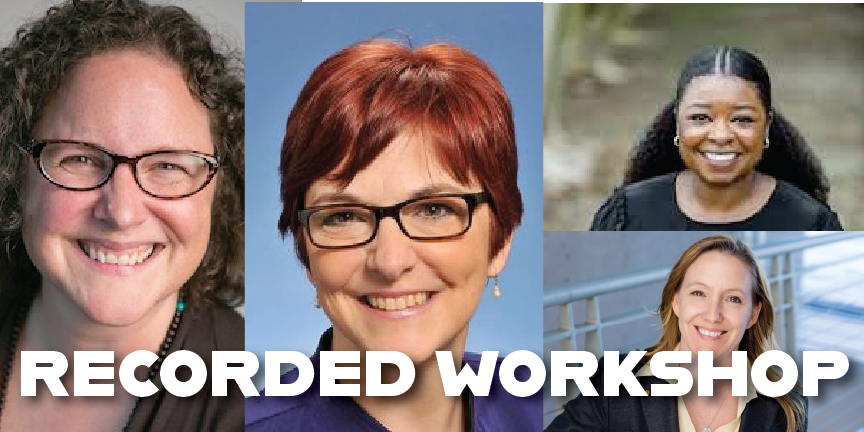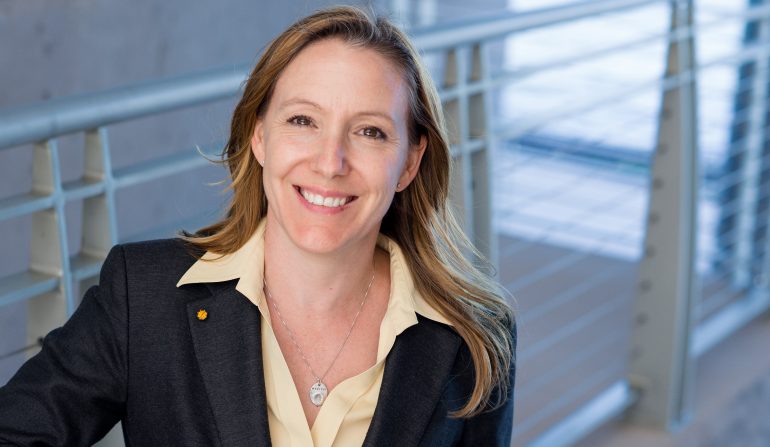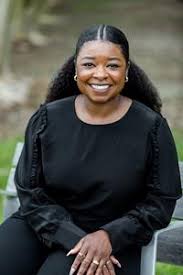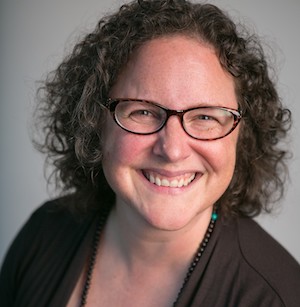
Diversity Papers: Tips and Guidelines for Authors and Evaluators
Virtual Workshop
August 12, 2020
10 AM PT, 11 MT, 12 PM CT, 1 ET
ASEE believes that diversity and inclusiveness is essential to enriching educational experiences and innovations that drive the development of creative solutions in addressing the world’s challenges. In order for the engineering discipline to reach its full potential, the engineering education community and the engineering profession must better include all segments of our society. In particular, engineering must actively engage and help promote the pursuit of engineering education and engineering careers with those individuals who have been historically under-represented within engineering. The Commission on Diversity, Equity, & Inclusion has highlighted scholarship in this area with a Best Paper award since 2015.
In this workshop, we discussed the history and motivation of the Best DEI Paper award and review tips and guidelines for both authors and evaluators following the CDEI Rubric and Guidelines.
Facilitators
 |
Dr. Adrienne R. Minerick
Adrienne R. Minerick is Dean of the newly formed College of Computing and a Professor of Chemical Engineering at Michigan Technological University. She earned her B.S. from Michigan Tech and her M.S. and Ph.D. from the University of Notre Dame. Adrienne is a fellow of ASEE, fellow of the American Association for the Advancement of Science (AAAS), former President of the AES Electrophoresis Society, and a Michigan Professor of the Year Nominee, which illustrate her dual passion for research and education’s impact on individuals and societal advances. She directs the Micro Medical Device Engineering Research Laboratory (μM.D. – ERL) at Michigan Tech and is Chief Technology Officer of a start-up company Microdevice Engineering, Inc (MDE). She has managed, as PI or co-PI, 42 grants/contracts for a total of $8.7 million yielding 93 research graduates*, a patent, and 88 publications/book chapters [*11 PhDs (64% women, 18%URM), 3 MS, 79 undergraduates; overall 56% women and 22% URM]. Her group’s NSF CAREER Award research into portable blood diagnostic devices led Adrienne to co-found MDE concurrent with her team’s journey through NSF’s I-Corps. Over 140 customer interviews determined the technology would be best leveraged to screen blood donors for hematocrit levels and blood type. Funding from NSF via PFI and STTR Phase I and II enabled MDE to conduct blood donation center laboratory validation. These experiences taught skills in strategy, planning and execution in complex ecosystems. Adrienne has served in administrative roles at Michigan Tech spanning multiple disciplines: Associate Dean for Research and Innovation in the College of Engineering, Assistant to the Provost for Faculty Development, Dean of the School of Technology and now founding Dean of the College of Computing. In each role she engaged faculty, staff, and student talents in creative ways to achieve goals. As Assistant to the Provost for Faculty Development, she led a team that piloted and institutionalized Early Career Management Committees (http://www.mtu.edu/provost/programs/ecm/) to situate new faculty for success. Adrienne is also PI of Michigan Tech’s ADVANCE efforts (Adaptation and Partnership grants) to retain women, underrepresented, and intersectional faculty by evolving university cultural norms. Because ASEE is comprised of passionate individuals working for the betterment of our students and the broadly-defined engineering profession, Adrienne has remained very active in the organization. She has served ASEE in various capacities beginning in officer roles in the New Engineering Educators Division, then as program chair and newsletter editor in the Chemical Engineering Division, and in multiple webmaster/treasurer/other roles in the Women in Engineering Division. Most recently she served as ASEE’s First VP, VP PICs and PIC I chair. Her passion is in championing for equity, which led to her role as a former Chair of ASEE’s Committee for Diversity, Equity and Inclusion. This included leadership during the Year of Action on Diversity and crafting the Strategic Plan, which still guides the committee’s ever-growing impact on ASEE’s culture. Culture is not a past cause to a current self. Culture is the current challenge to possible future selves. -Ray McDermott |
 |
Dr. Rochelle Williams |
 |
Dr. Becky Bates
Rebecca Bates is Professor and Chair in the Department of Integrated Engineering at Minnesota State University, Mankato where she directs three project-based learning engineering programs, Iron Range Engineering, Twin Cities Engineering and the new IRE Bell Program. These cutting edge programs articulate with community college programs and partner with regional industry to prepare students for all aspects of engineering careers. The department is committed to increasing access to engineering education. She has been a Program Officer at the National Science Foundation where she supported the Historically Black Colleges and Universities Undergraduate Program (HBCU-UP), the Tribal Colleges and Universities Program (TCUP) and the Alliances for Graduate Education & the Professoriate (AGEP) program. She has served in the leadership of ASEE’s Committee on Diversity, Equity & Inclusion and in the Engineering Ethics division. She is on the Editorial Board of the Online Ethics Center. |
